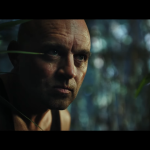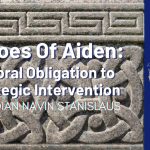A sane voice in the madness frames COVID in a way only a true humanitarian can.
For a larger part of the last decade, I served under the leadership of Dato’ Dr Ahmad Faizal Mohd Perdaus, President of MERCY Malaysia.
His approach to managing probably the most prominent medical relief organisation in the global south has always been about the people we serve. It has never been about him.
Over the last 12 years, Dr F has succeeded to morph MERCY Malaysia from a personality-driven organization to one that now stands on its own in the humanitarian world and is a proud global example of amazing Malaysians doing amazing things.
For Dr F and all at MERCY Malaysia and our overseas offices, the human imperative comes first as we serve at home and around the world. He is a true giant who walks in the shadow of self-proclaimed ones. Dr F personifies the hallmark of humanitarian excellence – you are only as good as your last deed.
If readers are wondering why I am writing a story about Dr F this week, it is because he is one unassuming man who brings clarity of purpose unlike most of the communications we have been exposed to about COVID-19.
A very articulate gentlemen who speaks with a deep baritone, he is a respiratory physician and leads the Health and Emerging Hazards panel of the Scientific Expert Advisory Panel to the National Disaster Management Agency (NADMA).
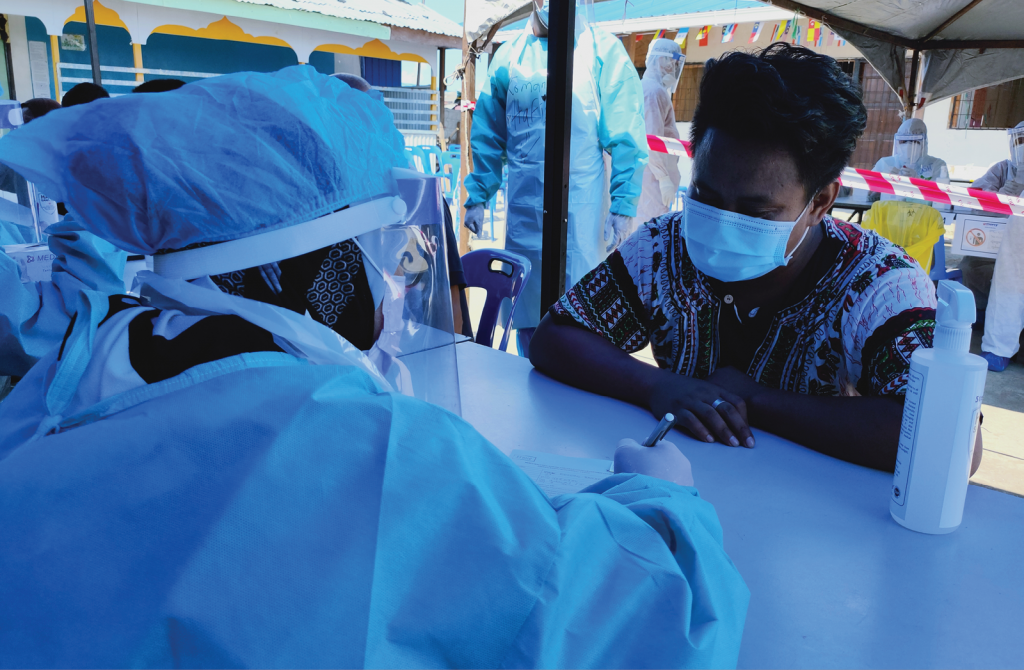
What is your perspective and advice to those who want to do humanitarian work?
Humanitarian work is also about behavioural change.
Ongoing disasters and ones that are waiting to happen prove that humanitarian work is not a fad about heroics but a way of continuously giving.
First responders and emergency response are only the tip of the iceberg.
To many volunteers this is the ‘sexy part’.
But rehabilitation, rebuilding and mitigation must follow with the same critical focus. We stay long after the danger is gone and work with local communities to build resilience.
“We just don’t just pack up and leave once the disaster is no longer grave. Children in these devastated communities are the first to make you realise that they see humanitarians as their only hope. It breaks my heart whenever I look in their eyes.”
Our psycho-social division is also pivotal in rehabilitation efforts so the human spirit can recover and thrive again.
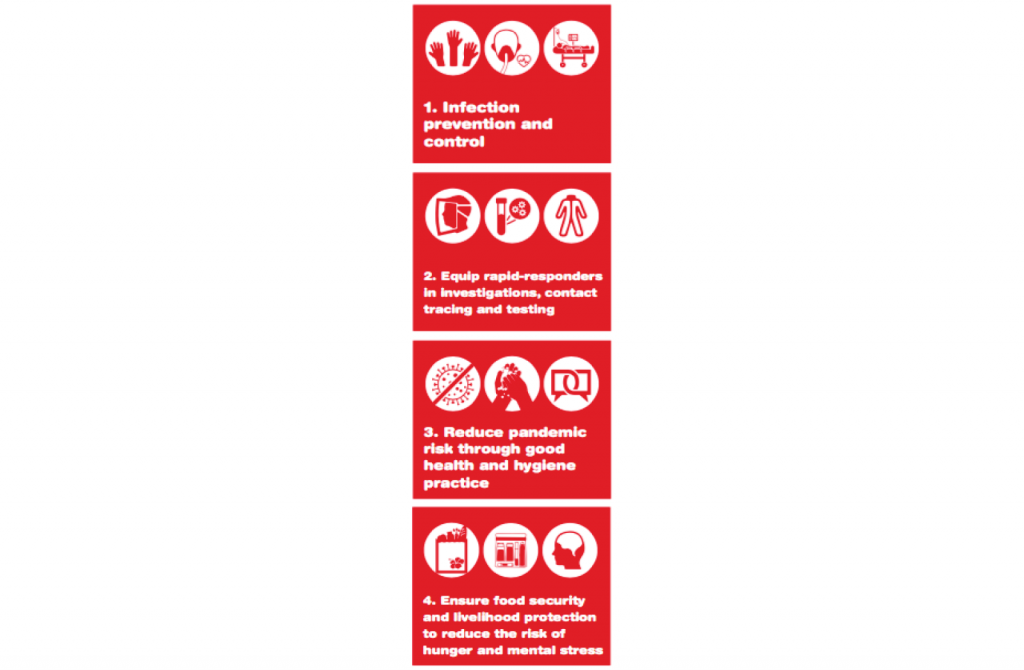
Tell us about COVID-19 and the coming vaccinations….
MERCY Malaysia has been helping the government and society since the pandemic began. This involves management of patients at the micro level and the public at a macro level. We are actively involved in making PPE suits, handling testing, and more…
I wish to correct the conflicting thinking about the COVID-19 vaccinations. “All vaccinations prevent disease; not treat them.”
Which means all infected people at the point in time when vaccinations are given will remain infected and will need to seek treatment if symptomatic or ill.
Examples of successful immunisation programs globally are the ones for smallpox and polio, while an example of a partially successful one is the one for tuberculosis.
But vaccinations prevent the spread and eventually build herd immunity which needs a time frame of at least 1-2 years post immunisation globally.
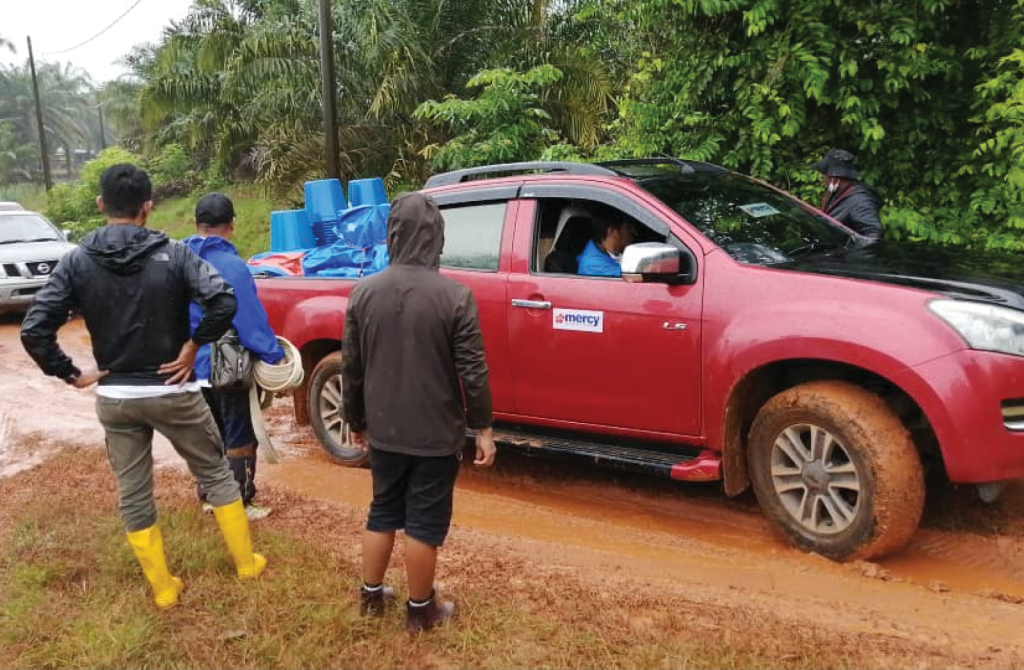
The closest vaccine to compare with the Covid vaccine is the Influenza vaccine which can be taken annually or when one wants to travel overseas and also given to those at risk. But the influenza virus is less virulent than COVID. That’s why the COVID-19 vaccine is critical. Those who shun it are basically fighting the pandemic with their hands tied behind their backs.
Even the influenza vaccine which has undergone years of trial and given to communities at large does not provide a lifetime guarantee against infection.We have to be patient. Because COVID-19 is both transmissible, without being too deadly. Which means that it is a super spreader, while mortality rates are relatively low (1-3%) and only death cuts the transmission chain absolutely.
In comparison, the Middle Eastern Respiratory Syndrome (MERS) which is also caused by a coronavirus, the MERS Co- V, has a high mortality rate, around 40%, thus while deadlier than Covid, the deadliness of the virus ironically limits its spread.
The virus is also very adaptable and has the capacity to mutate, evolve and develop new strains – for example Brazil, UK, South Africa, therefore vaccine development has to adapt too.
Do you see a communications issue here?
Yes. There’s too much medical jargon out there. Different messaging is required at different phases and at different levels as there is also a danger of messaging fatigue and people switch off if it is repeated endlessly.
The main issue at this stage is to talk about the vaccines and ready ourselves for it. Like any advertising campaign, interest must be sustained throughout. Truth and honesty combined with a healthy dose of common sense always work.
… Like any advertising campaign, interest must be sustained throughout…
Even Dr Fauci and CEOs of the companies producing the vaccines are not denying that a vaccine trial and development phase of 3-5 years is required to provide full guarantee of its efficacy and safety.
So far, no major adverse effects have been detected in the trials and the vaccines have been tested and administered to millions. Minor side affects happen with all vaccines. There is no 100% understanding of its long term effects yet. Only time will tell… but it is currently modelled to work as best as possible.
What are the biggest challenges you have in Malaysia?
Logistics will be a challenge, especially since we have large parts of the interior not so easily reached particularly in some states.
Recruiting enough volunteers to help administer the vaccine will also be challenging.
What can Malaysians do in the meantime?
Practice new social norms, accept the new culture of wearing masks, washing hands and social distancing.
The better we do this, the faster we can return to normalcy.
For example, thousands of tennis fans are currently attending the Australian Tennis Open after a three-week postponement due to covid as players from outside of Australia had to undergo sufficient quarantine and also testing before play can commence.
The organisers expect up to 400,000 fans to attend the tournament this year in a socially distanced manner, around half the number that were at last year’s competition.
What is your wish moving forward?
At a strategic level, I sincerely hope all agencies and experts can come together and share options and agree to disagree on trivial matters. If this is not the time to do so I don’t know when is the right time. Partisan politics and communal sentiments must be set aside. Life must go on, change if something does not work.
At an operational level, more funding is a must, funding must also be judicious and sensible. Difficult decisions must be sensible too. We do not see that happening often enough. Like the home quarantine decision failed for returning visitors simply because common sense was disregarded.
At the ground level, we must have a balanced approach – govt, agencies, people, organisations all equalizing priorities between life and livelihoods.
Most importantly, if you are infected, please come forward.
It is about the collective survival of the human race.
When will things come back to normal?
Ah the question on everyone’s lips! I’d say will begin to turn the tide in late 2021/early 2022 because current modellings done globally show it will be longer than expected; and in Malaysia, we are actually in a different phase compared to some countries where the tide has already started to turn.
Apart from leading MERCY Malaysia and serving on advisory panels, Dr F also has hands-on experience treating COVID patients personally at the hospital where he still practices.
STOP PRESS: To support MERCY Malaysia’s COVID-19 Pandemic Fund, visit www.mercy.org.my or direct transfer to MERCY Humanitarian Fund (MBB 5621 7950 4126) or MERCY Malaysia (CIMB 8000-7929-08). All monetary donations are tax exempt.
MARKETING Magazine is not responsible for the content of external sites.



